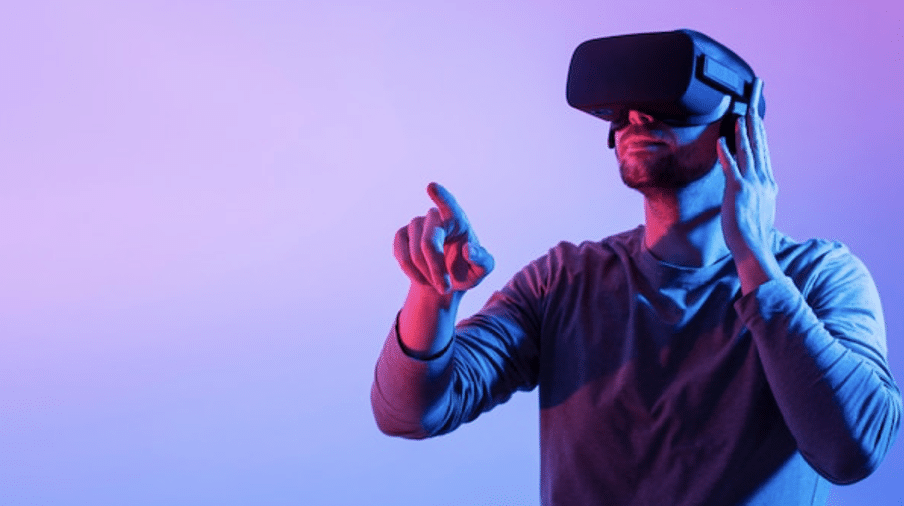Manchester has been dabbling in augmented (AR) and virtual reality (VR) technology, using these innovations to create a unique, immersive experience. Gaming, museum experiences, and fashion have all benefited from this technology, but the use of AR and VR also goes beyond surface-level fun. For instance, Manchester’s leading tech companies are using AR and VR for their science and tech campus, Credersi World, to innovate the global education metaverse. Credersi and PixelMax aim to create a platform for reskilling workforces of the future in an immersive and engaging way, future-proofing talent as technology evolves rapidly.
As showcased by the work of Credersi and PixelMax, AR and VR present promising opportunities to solve challenges and create new experiences in various industries. But beyond holograms and the metaverse, here’s how AR and VR are emerging in daily life:
Smart glasses
Smart glasses have long seemed like out-of-touch technology only possible in science fiction, but more and more models are emerging, offering various features and functions. Ray-Ban and Meta collaborated on a new generation of smart glasses, taking the former’s expertise in eyewear innovation and design and combining them with the latter’s tech and communication prowess. The Ray-Ban Meta smart glasses enable high-quality photo and video taking as well as live streaming, all of which can be shared on Meta social media platforms. The smart glasses also look like a regular pair of sunglasses, allowing for a more subtle wearing experience that’s stylish and functional enough for everyday wear.
Many other smart glasses are also integrating augmented reality into their displays, offering an immersive and cutting-edge experience for wearers. The XREAL Air 2 Ultra smart glasses are the latest in the XREAL brand’s lineup of smart glasses, and it support full motion tracking (six degrees of freedom, or 6DoF), so the AR displays stay anchored whenever you move. Smart glasses allow for new, hands-off experiences that can seamlessly integrate tech into daily life.
AR fashion experiences
AR has become a massively useful tool in fashion, especially for online shopping. It helped fill in the gaps left by the lack of in-person experiences that e-commerce could not replicate through online means. AR-powered virtual try-on filters simulate the experience of wearing a product, allowing users to see how the item looks on them so they can make more informed purchases. Luxury fashion is also seeing the benefits of AR in business, not only for enhancing customer experiences but also for measuring brand performance and conversion.
Fashion houses like Dior are working on a catalogue of virtual products, enabling users to try on full outfits on Snapchat, and AR can offer access to experiences like fashion shows that can take people behind the scenes of the industry. With 72% of UK luxury fashion shoppers desiring more AR experiences when shopping, it’s expected that AR will increasingly become more integrated into the scene, potentially offering personalised style consultations, exploring runaway collections, and brand storytelling.
Enhancing visitor attractions
Visitor attractions are constantly aiming to create more immersive experiences that can engage visitors and compel them to return. AR has become a major visitor attraction trend for this reason, allowing guests to interact seamlessly with technology and the real world.
One example is Manchester’s Museum of Austerity, which uses AR to enhance the viewing experience, deepening emotional responses and connections to attractions. The museum uses 3D holograms to display actors portraying real people who suffered under the cruelty of the disability benefits system. Visitors can walk through the exhibit, making it feel more real and impactful compared to watching from a distance. AR can bring more captivating experiences for tourists or people seeking new and innovative approaches to attractions.
AR technology is rapidly evolving, and it’s expected that its use can go beyond personal products and experiences and extend to broader industries and locations. With Manchester being a dominant UK tech hub, residents and visitors may see more AR-driven innovations sooner rather than later.



